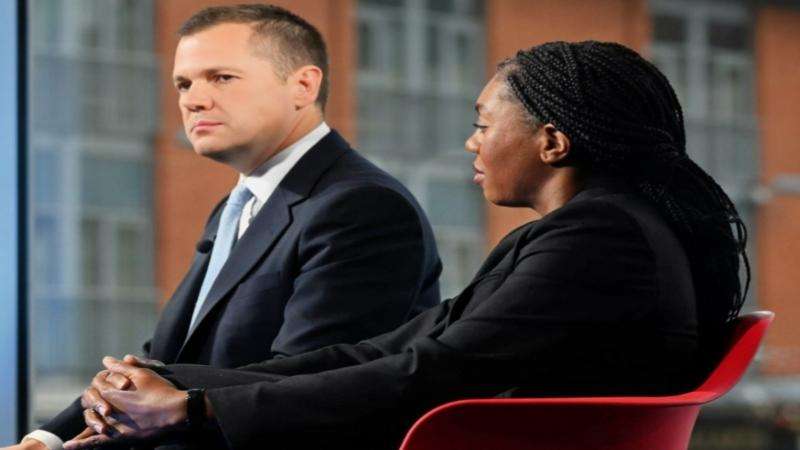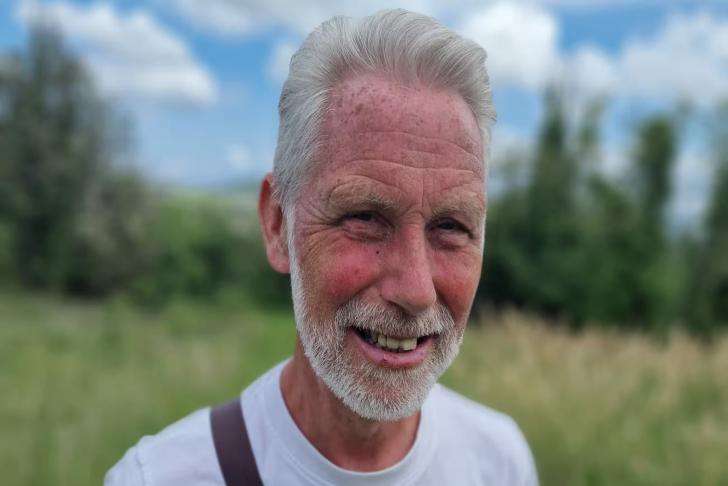According to a British citizen living in Italy, local officials' lack of understanding of the Brexit separation agreement has prevented him from receiving the free healthcare to which he is entitled. The individual has a rare cancer.
Days before David Cameron, the foreign secretary and man who started the Brexit referendum, meets for the first time in person with vice president of the European Commission Maroš Šefčovič in Brussels to discuss relations after Brexit, 61-year-old Graham Beresford made his voice known.
Beresford ought to have the same access to healthcare under the terms of the withdrawal agreement as a permanent resident.
But he has repeatedly, and erroneously, been told that he is only entitled to the permanent residency document if he had been in the country for five years before Brexit and is now facing demands of €2,000 (£1,700) for an Italian health card.
Campaigners say Beresford is one of hundreds of Britons in this situation.
“Brexit is the cause of this. Brexit is an absolute disaster, an act of self-harm of the worst kind for absolutely nothing. I don’t know why anyone voted for it,” said Beresford, who cannot, despite trying for years, persuade the local authorities he is entitled to healthcare under the Brexit deal.
Beresford managed energy for the local council in Glasgow, but took early retirement and moved to Italy in January 2019 to realise his retirement dream before the Brexit drawbridge in January 2021 which put a stop to free movement.
Initially he relied on savings, but when he reached 60 he was able to access his pension of about €10,000 (£8,600) a year.
Local authorities have told him that the withdrawal agreement gives health rights only to British nationals who were in the country for a full five years before the end of the transition period on 31 December 2020.
Attempts to convince authorities that they are making an error have been futile.
Cameron’s meetings with Šefčovič on Thursday – as part of the EU-UK joint committee and the EU-UK Partnership Council – are his first official stocktake of Brexit, and come eight years after he resigned over the referendum result.
One will focus on the trade and co-operation agreement, where energy co-operation, the fisheries deal and post-pandemic health security will be discussed, and the other on the withdrawal agreement in which citizens’ rights and an update on the Northern Ireland Windsor framework are on the agenda.
In February, the Italian health ministry circulated a two-page letter to local authorities confirming that Britons who were in Italy before Brexit were entitled to register for free with the Sistema Sanitorio Nazionale, the Italian version of the NHS.
This is also referenced on the UK government’s Living in Italy page.
When Beresford took a copy of the minister’s letter to the local authority, he was still met with resistance. “She told me ‘we need further clarification’,” he said, and they refused to issue him with his health card.
“Cameron needs to provide funding for the embassy to employ someone to help British citizens with Brexit issues,” said Beresford. “Brexit was not all enacted at once by the UK, it has been implemented transitionally, so it only stands to reason that citizens will be affected transitionally as each new act is implemented.”
Campaigners in Italy wrote to Cameron about the issue in January but have not received a reply.
Beresford, who is on chemotherapy drugs, said: “I just want to be able to have healthcare without having to worry week to week whether we are going to get a prescription or not.”
Clarissa Killwick from Beyond Brexit - UK citizens in Italy said Beresford’s case “highlights how extremely vulnerable some people are”, particularly because of the lack of “joined-up communications” which she said was a clear breach of article 37 of the withdrawal agreement.
She added: “The funding from the UK government for dedicated assistance for people such as Graham stopped in 2021 and, unlike in the UK, there is no independent monitoring of withdrawal agreement implementation. It is easy for 1.3 million people to become invisible when they are scattered across 27-plus countries.
“To have a hope of things functioning as they should, information needs to be timely, unambiguous and easily accessible.”
A spokesperson for the Foreign Office said: “Access to healthcare for British nationals living abroad under the UK-EU withdrawal agreement is a top priority for the UK.
“We are pressing the Italian authorities for clarity for those who are facing problems accessing healthcare services or where there is confusion around eligibility, and supporting affected individuals.”
_8.jpg)
_5.jpg)
_8.jpg)





.svg)


